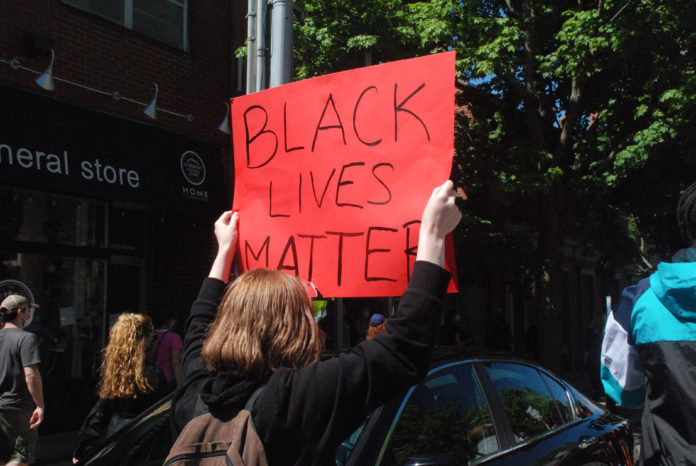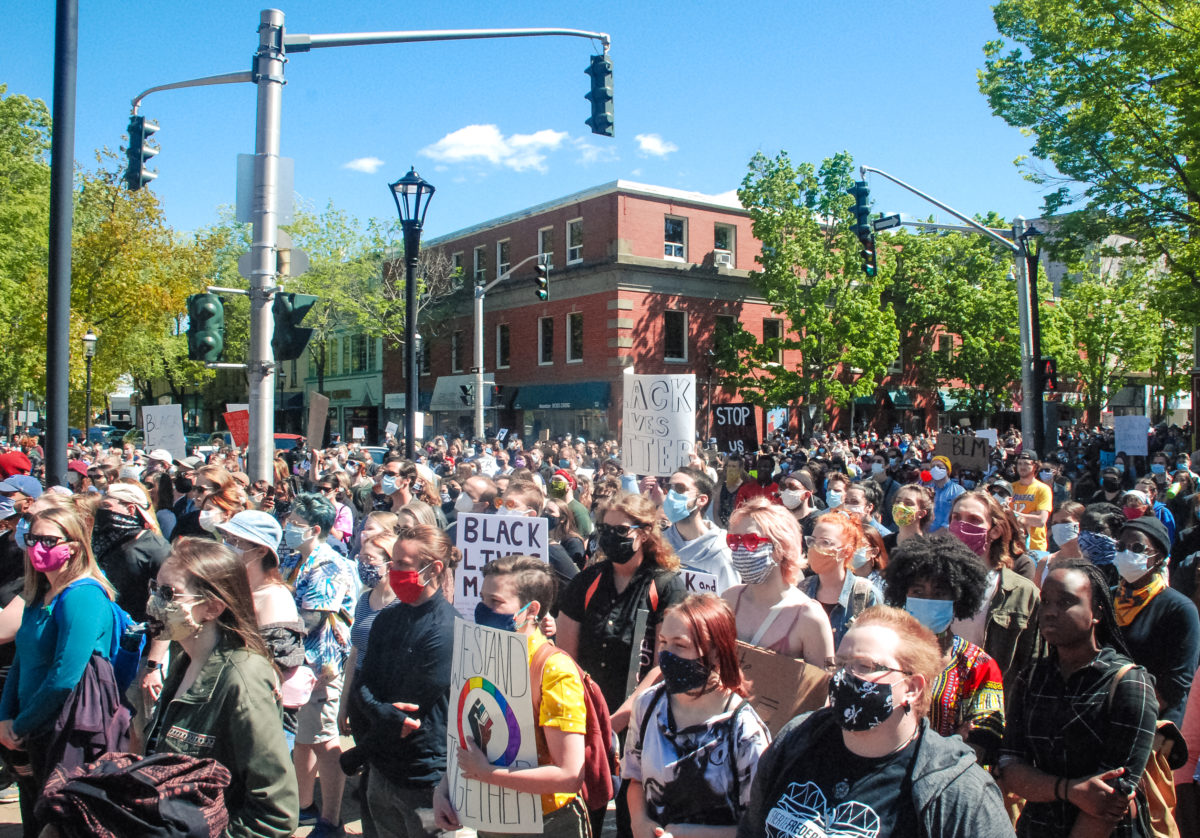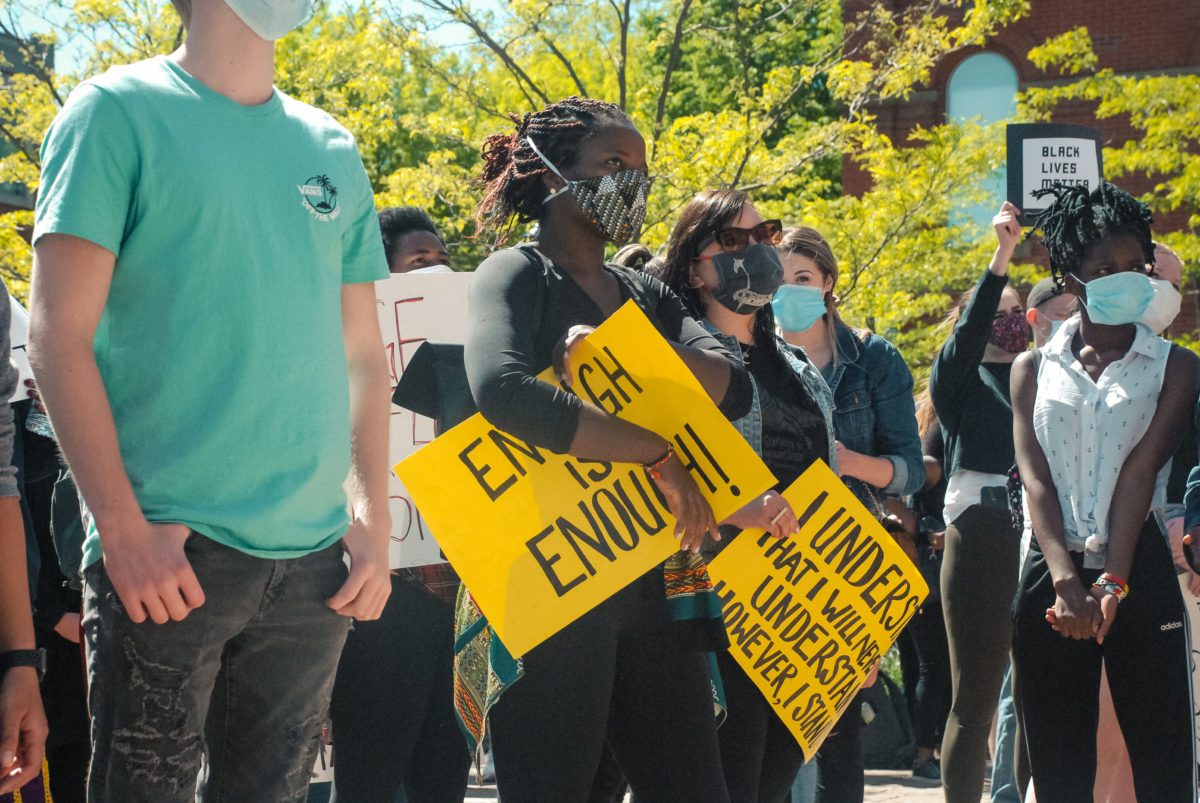

Hundreds of protesters knelt for nine minutes in front of Fredericton City Hall on June 2 for the Black Lives Matter march. They knelt in memory of George Floyd, a Black man who was murdered in broad daylight when a Minneapolis police officer knelt on Floyd’s neck for nine minutes.
Former president of the St. Thomas University Students’ Union and founding member of the Black Lives Matter Fredericton organization, Husoni Raymond, was one of the main faces of the protest. He said he believes that protesting is an important aspect of civil rights because it showcases the issues within the socio-political system against Black people.
“Anti-Black racism isn’t new. It’s something Black people have been living with for centuries,” Raymond said.
“As doctor [Martin Luther] King said, ‘riots are the language of the unheard.’ They are important in bringing issues that have been swept under the rug to the forefront.”
“Black Lives Matter” — a term originally coined by Alicia Garza, Patrisse Cullors and Opal Tometi — has become a social movement that demonstrates advocacy, justice and change worldwide for the Black community. For years, the civil rights movement has taken place all over the world to advocate for change. The video of Floyd’s murder sparked worldwide protests against systemic racism and police brutality.

In Fredericton, a rally of individuals from different backgrounds came together to protest against the ongoing racism and police brutality seen not only in the United States, but in Canada as well. Chants could be heard throughout downtown and most people were waving signs.
Raymond said he believes that when people protest it shows that there is a demand for social change.
“I was pleased to see that so many people in Fredericton were willing to stand up to systemic racism in our communities,” he said.
A few STU students gave speeches at the protest including Dorcas Tshimenga, Mina Deo and Shannon Gumbs.
“I felt it was important to do because I consider myself passionate about human rights issues and issues related to the Black community and felt I could not sit in silence any longer when I have so much to say,” Gumbs said.
She said the protest gave her the opportunity to overcome her fear of public speaking and deliver a speech on the importance of racial injustice issues and why they should be dealt with.


The protests also inspired advocates who wanted to see a difference in the Black community to create a Black Lives Matter Fredericton chapter.
“We have been able to secure funding through [the University of New Brunswick] to create a Black history resource website for teachers to meaningfully incorporate Black history in the N.B. public school curriculum,” Raymond said.
Collaboration between communities
Black and Indigenous communities also worked in collaboration to fight for equality and justice against police brutality.
In the span of one month, two Indigenous people were fatally shot by police in N.B.
Edmundston police fatally shot Chantel Moore during a wellness check on June 4, saying she had a knife. About a week later, New Brunswick RCMP fatally shot Rodney Levi after responding to a call about an unwanted person. Police arrived on scene and said they saw Levi carrying knives, promoting them to unsuccessfully use a stun gun several times before fatally shooting them.
Raymond said that ties between Black and Indigenous communities have strengthened in Fredericton as a result.
The communities came together in the summer in a unity ceremony. Raymond said both communities are working with one another to fight systemic racism in New Brunswick because they recognize the interconnected interests against the oppression of both communities.
“We have been advocating to both provincial and municipal governments and look forward to our calls the actions being implemented in the near future.”
